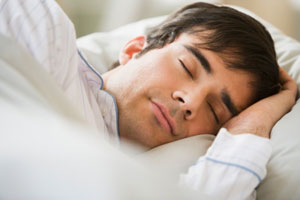J Clin Sleep Med. 2013 Nov 15;9(11):1131-7. doi: 10.5664/jcsm.3150.
Chung S, Bohnen NI, Albin RL, Frey KA, Müller ML, Chervin RD.
Source
Sleep Disorders Center and Department of Neurology, University of Michigan, Ann Arbor, MI ; Department of Psychiatry, University of Ulsan College of Medicine, Asan Medical Center, Seoul, Republic of Korea.
Abstract
STUDY OBJECTIVES:
Insomnia and daytime sleepiness are common complaints in Parkinson disease (PD), but the main causes remain unclear. We examined the potential impact of both motor and non-motor symptoms of PD on sleep problems.
METHODS:
Patients with PD (n = 128) were assessed using the Insomnia Severity Index, Epworth Sleepiness Scale, Unified Parkinson Disease Rating Scale, Beck Depression Inventory, Fatigue Severity Scale, Survey of Autonomic Symptoms, and the 39-item Parkinson Disease Questionnaire. A subset of subjects (n = 38, 30%) also completed nocturnal polysomnography and a multiple sleep latency test (MSLT).
RESULTS:
Multivariate stepwise logistic regression models revealed that subjective insomnia was independently associated with depressed mood (odds ratio [OR] = 1.79; 95% confidence interval (CI) [1.01-3.19]), autonomic symptoms (1.77 [1.08-2.90]), fatigue (1.19 [1.02-1.38]), and age (0.61 [0.39-0.96]). Subjective daytime sleepiness was associated with dosage of dopaminergic medication (1.74 [1.08-2.80]) and fatigue (1.14 [1.02-1.28]). On polysomnography, longer sleep latency correlated with autonomic symptoms (rho = 0.40, p = 0.01) and part I (non-motor symptoms) of the Unified PD Rating Scale (rho = 0.38, p = 0.02). Decreased sleep efficiency correlated with autonomic symptoms (rho = -0.42, p < 0.0001). However, no significant difference emerged on polysomnography and MSLTs between patients with or without insomnia or daytime sleepiness. Higher rates of apneic events did predict shorter sleep latencies on the MSLTs.
CONCLUSIONS:
Non-motor symptoms appear to be associated with subjective insomnia, whereas fatigue and dopaminergic medication are associated with subjective daytime sleepiness. Objective sleep laboratory data provided little insight into complaints of insomnia and sleepiness, though obstructive sleep apnea predicted worsened sleepiness when measured objectively.

No comments:
Post a Comment